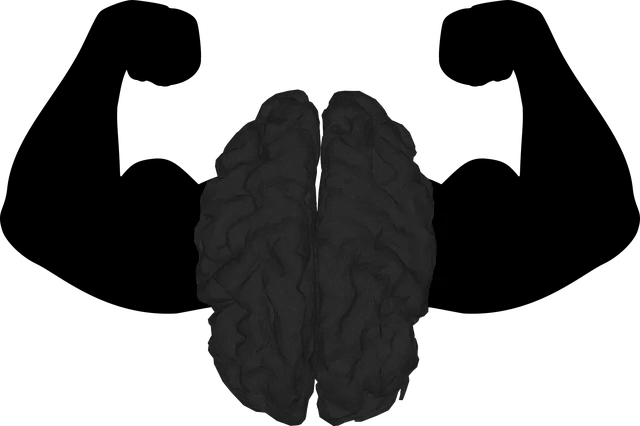Kaiser Permanente's comprehensive cultural competency program at its mental health locations in Northglenn, Colorado, prioritizes understanding diverse patient backgrounds for improved engagement and outcomes. Through staff training, policy advocacy, and education, they foster inclusive spaces that respect cultural nuances. This initiative leads to enhanced self-esteem, emotional well-being, and stronger patient-provider connections, while also reducing mental health stigma through community outreach. By integrating risk management and accessible resources like the Mental Wellness Podcast Series, Kaiser Permanente ensures quality care for all Northglenn residents.
“In today’s diverse healthcare landscape, cultural competency among providers is no longer an option but a necessity. This article explores this critical aspect of modern medical practice, focusing on Kaiser Permanente’s innovative approach in Northglenn. We delve into the key components of successful cultural competency programs and their profound impact on patient care and community engagement, illustrated by Kaiser Permanente’s mental health initiatives in this vibrant, bustling location.”
- Understanding Cultural Competency in Healthcare: A Necessity in Modern Practice
- Kaiser Permanente's Approach to Mental Health Training in Northglenn
- Key Components of Effective Cultural Competency Programs
- Benefits and Impact on Patient Care and Community Engagement
Understanding Cultural Competency in Healthcare: A Necessity in Modern Practice

In today’s diverse healthcare landscape, cultural competency is no longer a nice-to-have—it’s a necessity.
This means that healthcare providers must be equipped to understand and appreciate the unique cultural backgrounds, beliefs, and values of every patient they serve. At Kaiser Permanente mental health locations in Northglenn, for example, this approach is at the heart of their mission to provide holistic care. By embracing cultural competency, mental health professionals can create safer, more welcoming spaces for patients from all walks of life. This goes beyond simple language translation; it involves truly listening and learning about the specific needs, challenges, and strengths that shape each individual’s experience of mental wellness.
The benefits are profound. When healthcare providers demonstrate cultural sensitivity, patients are more likely to seek help, engage in treatment, and achieve positive outcomes, including improved self-esteem and emotional well-being promotion techniques. Mental Wellness Journaling Exercise Guidance can be a valuable tool within this framework, empowering individuals to reflect on their experiences and track their progress while fostering deeper connections between patient and provider. This tailored approach ultimately strengthens the bond between healthcare and the communities it serves.
Kaiser Permanente's Approach to Mental Health Training in Northglenn

Kaiser Permanente, a renowned healthcare provider, has implemented a comprehensive mental health training program in Northglenn, Colorado. This initiative aims to enhance cultural competency among their workforce, ensuring they can effectively support the diverse mental health needs of the community. The program focuses on educating staff about various cultural perspectives and beliefs related to mental illness, encouraging empathy and understanding. By fostering a culturally sensitive environment, Kaiser Permanente’s approach promotes better patient outcomes and improves access to quality care for all individuals seeking mental health services in Northglenn.
In addition to this training, the organization also emphasizes the importance of self-care practices among their professionals. They recognize that mental health providers must prioritize their well-being to effectively support others. As such, they offer resources and workshops to help staff manage stress and maintain a healthy work-life balance. Furthermore, Kaiser Permanente has initiated public awareness campaigns to reduce the stigma surrounding mental health, targeting specific communities within Northglenn. These efforts contribute to a broader strategy that includes risk assessment tools for mental health professionals, ensuring early intervention and comprehensive support for those at risk.
Key Components of Effective Cultural Competency Programs

Effective cultural competency programs in healthcare must be multifaceted to cater to diverse communities. Key components include comprehensive training for staff, focusing on self-care practices and promoting a deeper understanding of various cultural backgrounds. At Kaiser Permanente mental health locations Northglenn, for instance, these programs often incorporate role-playing scenarios, cultural simulations, and workshops that encourage open dialogue about unconscious biases and microaggressions.
These initiatives extend beyond individual awareness to include structural changes within the organization. Incorporating Mental Health Policy Analysis and Advocacy ensures fair access to mental health services for all patients, regardless of their background. Additionally, well-designed Mental Health Education Programs aim to educate both staff and clients about cultural nuances, fostering an inclusive environment that respects and values diversity.
Benefits and Impact on Patient Care and Community Engagement

Cultural competency training plays a pivotal role in enhancing patient care and fostering stronger community engagement, especially in diverse regions like Northglenn where Kaiser Permanente mental health locations serve a wide range of individuals. By equipping healthcare providers with empathy building strategies, they become more adept at understanding and addressing the unique cultural, social, and psychological needs of their patients. This not only improves treatment outcomes but also promotes trust and satisfaction among diverse communities.
Furthermore, integrating risk management planning for mental health professionals into these training programs is essential. It equips them to navigate complex situations with cultural sensitivity, ensuring safe and effective care delivery. Additionally, initiatives like the Mental Wellness Podcast Series Production can engage communities in a more accessible way, providing valuable insights and support. Such efforts collectively contribute to creating a more inclusive healthcare ecosystem that positively impacts mental health outcomes for all residents of Northglenn.
Cultural competency training, as demonstrated by programs like Kaiser Permanente’s in Northglenn, is transforming healthcare delivery. By equipping providers with the knowledge and skills to understand and respect diverse cultural backgrounds, these initiatives enhance patient care and foster stronger community engagement. Effective programs, such as those highlighted, include key components like educational workshops, community partnerships, and ongoing evaluation. This holistic approach ensures that healthcare becomes more inclusive and responsive to the needs of a diverse population, ultimately leading to improved health outcomes and stronger communities. Kaiser Permanente’s commitment to mental health training in Northglenn serves as a promising model for other healthcare organizations aiming to enhance cultural competency across their networks.






